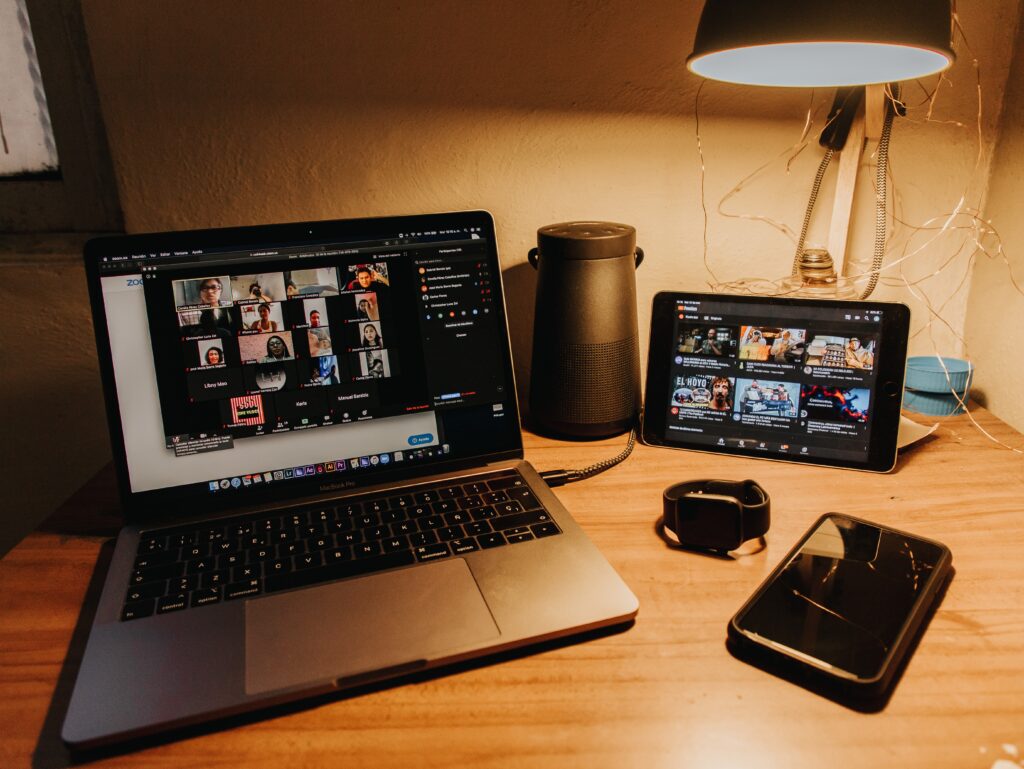
5 ways Coronavirus will change the way we work
As each of us adapts to life in lockdown, without particularly realising it, we’ve changed the way we work — perhaps permanently.
The first few weeks of life working from home was a scramble full of awkward video conference calls, self-motivation struggles and regular trips to the kitchen.
But people are adaptable, and as the dust settles and this way of working becomes the norm, it will be hard for industries to simply switch back to the way it once was after lockdown is lifted.
Even before the Coronavirus outbreak, there were whispers that in the next 10 years the workforce would evolve into a more remote, contract-based and tech-driven entity — a theory that not only now seems extremely likely, but dragged forward years ahead of its time.
Here are five changes we could begin to see once we start returning to the workplace.
Increased use of temporary and contract workers
The immediate impact of COVID-19 on the workforce has seen a reduction in the number of people in permanent jobs. Tens of millions of people across the world have either been laid off, put on reduced hours or placed under a temporary Jobkeeper scheme.
However, certain large firms like Woolworths, Coles and Amazon have been hiring people on a temporary and part-time basis due to the increased demand as people shift to shopping online and ordering food deliveries.

While these jobs will lack stability and benefits, they will nevertheless become more common even after the virus is contained. Companies scarred by the response to the pandemic will be reluctant to add full-time roles when they could add flexible roles instead.
However, office-based businesses will be apprehensive to rehire permanent staff not just because they’re still reeling from nightmare layoffs, but because the workforce has become more streamlined.
It’s during this period that companies will realise that without the usual office distractions like regular meetings, work trips and middle managers, in conjunction with an increased reliance on technology, work can be completed in a much quicker time-span. Unless the business can increase its workload, it may find it unnecessary to keep staff locked into 40-hours per week.
Not only this, but the shift to home life will mean that some of the workforce itself will desire this kind of arrangement. The recent changes have seen a greater emphasis on family and mental health, allowing people to think more about their well-being than working eight-hour days Monday to Friday.
Cutting back business trips and meetings
Although video calling has been available for a number of years, some of us were only semi-comfortable using the technology to talk to our friends or loved ones, and were certainly not ready to introduce it into the workplace.
Now that we’ve all been forced into video conferencing for team and client meetings, it’s not as scary as it once was. Zoom have been huge winners from this situation, having increased their daily users from 10 million to 200 million in just three months, while Google Meet’s daily usage is now 25 times higher than it was in January.

What all this means is, once we’re all back in the office, we can expect face-to-face meetings with external clients to decrease. Of course, sometimes business needs a personal touch, but not having to travel to meet in-person not only saves companies money, but it also reduces the wasted time travelling to different offices.
Also, following the global pandemic, our recent increase in cleanliness standards is likely to remain, which may have an effect on our willingness to travel. Airplanes, trains and taxis create ideal locations for viruses to spread from person-to-person and, even when COVID-19 is eradicated, if we can stay in the confines of our offices or homes, why would we take the risk?

An accelerated digital landscape
With all these new government restrictions, to stay afloat, some businesses have had to adapt to reach their consumers — and this means improving their online platforms and presence.
The restaurant and food industry is where this has been witnessed the most. People can no longer go to their favourite restaurant, so to attract customers and remind people they are open for takeaway, advertising and website design have come to the fore.
Places like fine dining restaurant Attica have created a home delivery menu on their website, while outside the food industry, we’ve seen global giants like Amazon increase their sales over the past few months as consumers almost exclusively shop for their items online.
Even when lockdown is lifted, purchasing items online is going to become the norm, making it even more pivotal that businesses have a good online presence and an attractive website to draw in customers. Expect businesses to invest more in website design, online advertising and content to reach the ever-increasing digital consumer.

Not only this, but our time at home has highlighted our need for quick, simple and functional technology. Once we head back to the workplace, we won’t settle for anything less. Furthermore, any of the workforce that was previously technology-shy have had to be thrown into the tech-savvy modern-day, and will be more open to using new technology in the future.
At Metronome, online tech is a medium we are already well-versed in. Our previous work for a multitude of national and international clients pays testimony to this, while we continue to help our current partners traverse the cluttered online world and come out ahead of their competitors when lockdown is over.
Fewer middle managers
With their digital transformation, companies will need far fewer middle managers, project managers, and executive assistants.
The main reasons for this are twofold. Firstly, with easy-to-use calendar tools and video conferencing systems, there is less need for administrative support. This will allow managers to control the whole team with much greater ease, reducing the need for a middle-person to oversee projects or assignments.
Secondly, during this lockdown, the workforce has been forced to become a lot more self-sufficient, solving their own problems without reaching out for help while also paying more attention to their own time management.

This will not only eliminate the need for external consultants who don’t know the business as well as a current employee, but it will also transform the style of management needed across the board.
To get the most out of staff who no longer need to be micromanaged, managers’ jobs may change into team leadership roles where they produce and coach.
Work will become more flexible
With the rise in part-time staff and emphasis on home life, working from home will become much more frequent, even for permanent employees.
Many companies have resisted requests to work from home because, put simply, they didn’t trust their staff to maintain their usual level of work. But this unexpected global work-from-home experiment has forced companies to accept it as a legitimate option — and it’s working.
Companies have also put greater technology systems and support in place to facilitate mobile working. Teams are figuring out how to collaborate at a distance and leaders are improving their ability to manage based on outcomes and objectives rather than presence.
As a result, companies may provide more flexibility to employees to work wherever they can get their best work done, including away from the office.
For some businesses, this shift in thought may prove to be financially beneficial. Not only will their staff become happier and, therefore, more productive, but it may allow them to downsize into a smaller, less expensive office space.

In the not-so-distant future, as more people work away from the office, we may see a shift towards shared office spaces, where workers can come and go, use meeting rooms when needed and not be tied down to one desk all week long.
Through all this COVID-19 turmoil, innovation is coming to the fore. These new ways of working will not only impact the workforce for the better, they will make companies more effective. Businesses who accept these changes to help shape tomorrow’s workplace will be the ones that prosper in the long term.
